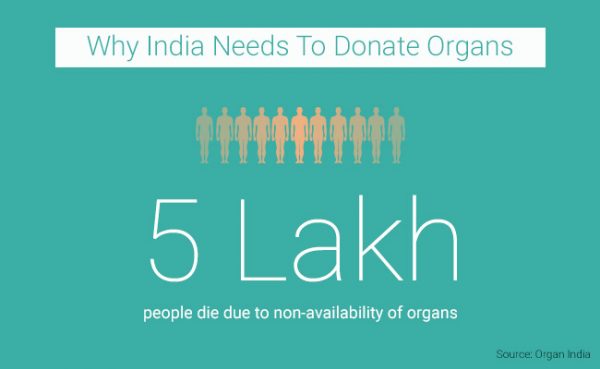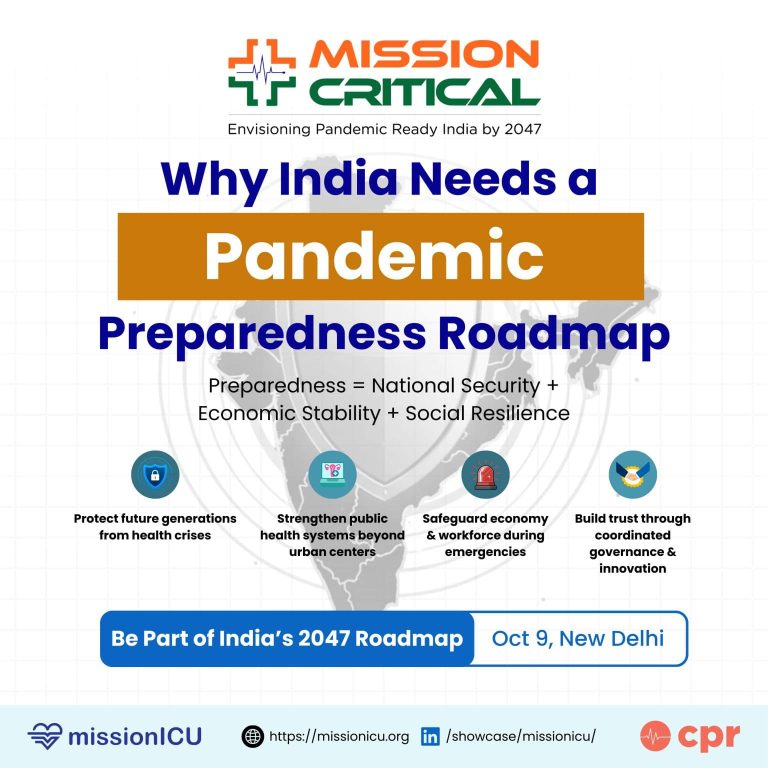
“Half a million Indians die every year waiting for organs in a country that conducts the second most transplants in the world.” This statistic shook me and to know more about the reasons behind this situation, I talked to Dr. Sourabh Sharma who is working in Projects and Outreach at Organ India, one of most prominent organisations working at the forefront to help improve the organ donation situation in the country.
Organ India was started with the mission of increasing the number of donor pledges in a country where only 5% of the total donations are cadaveric donations. They accomplish this through large scale information dissemination campaigns via social media, radio, television and conducting outreach programs in educational institutions throughout the country. They are also involved in educating those suffering from organ failure about various options available to them, giving them advice, counselling as well as monetary help, thus preventing illness and death of those with organ failure. “We have a 24×7 helpline number where people can contact us and we guide patients on how to sign up in the waiting list for the transplant ….and we even help in connecting people who have undergone transplants in the past and those awaiting one so as to create a support system between the two” said Dr. Sharma.
The outcomes and the data they get from their outreach programs and on-field operations, they pass on to the government, which can help in formulating public policies on organ donation. Another very interesting development is that recently, Organ India was appointed the Team Manager for Team India at the World Transplant Games, set to happen in 2023 in Australia.
Now talking about the reasons as to why we have such a dismally low organ donation rate, Dr. Sharma pointed out to simply the lack of awareness and the existence of myths and stigmas associated with the whole process. In many developed nations, an opt-out system of donation is followed where everyone automatically is registered to become a donor unless they opt-out, so people can have their organs donated without even knowing, whereas in India, the people are provided with a choice, and in most cases, they deny. This is mainly because of a severe lack of awareness and the plethora of myths surrounding brain death, organ donation, transplantation etc.
Now the question arises which has been subject to much controversy and debate over the years that is it better for India to switch to an opt-out system and would it translate into more donations. To this, Dr. Sharma stated, “Switching to an opt out system for india could prove beneficial and may improve our organ donation numbers, but it is far from practical, just because of the sheer diversity we have have in terms of socio-cultural aspects, religious beliefs, rituals and we would have to take into account all of that and manage that while taking into consideration an opt out system which would be a humongous task.” Now apart from the obvious lack of knowledge among the masses, we also do have a serious lack of transplant infrastructure and the already crippled healthcare system makes problems much worse. A lot of things have to go right and this whole mechanism needs to function together like a well-oiled machine if we are to see any change in the foreseeable future.
Now, when we talk about cadaveric or in simpler terms, deceased donations, we must imagine what exactly a family goes through when a death happens to get a proper picture of the situation. When a person dies, the family is still in the grieving process and their only priority at that time is to make sure all the rituals are conducted properly and the person receives a proper funeral, so even the thought of donating organs of the deceased is at the bottom of their priority list. “It becomes the initiative of the family to go out of their way to donate organs of their deceased loved one, and that becomes quite a challenge in itself ….as most people are unaware of who to call, who to inform, how donation will affect their rituals. There is no proper mechanism in place for cadaveric organ donation to take place after the brain death of an individual.” He believes that awareness is the only solution and it will surely convert into organ donation if enough people are made aware of the situation. “Right now only 2-3 organisations are working for organ donation, so impact is limited. Take the example of COVID, when COVID was at its peak, the kind of campaigns and drives that happened on a pan-India scale, something of that sort….a campaign happening continuously over a period of time without breaking its intensity would be needed to create the sort of impact we are looking at.”
So, what does the future look like for us? Well, there have been some major developments over the years, like the organ trafficking problem plaguing the country has been limited now only to the border towns and remote areas because of the strict protocols being put into place, and Supreme Court has given a very promising statement that soon the waiting list can be completed and the patients who have been long waiting for the organs can receive them as early as possible. The organ donation rate was also increasing uptil 2019, but due to COVID there was brake, it came down to 0.25% but now its come up to 0.4%. So things are improving but we still have a long way to go. And it is upto each one of us to make a difference by pledging to donate our organs after we pass on. SO,
HOW CAN A LAYMAN REGISTER TO BE A DONOR? “Well, The person can go for a pledge, for which they can go to the organ india website and fill a form, and in turn they’ll receive a donor card an a certificate along with an instruction manual. Then they can inform their family about their wish because ultimately it is the family who will give the final consent after the death of the person. So, it is the family’s consent which becomes the deciding factor, irrespective of the donor card.


